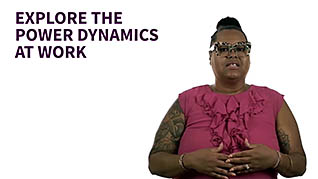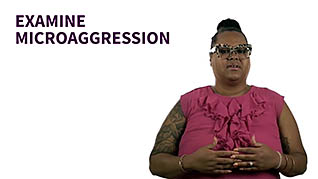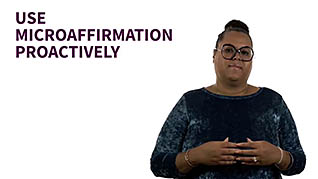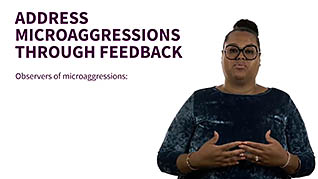Course Overview
Social identities are the categories that allow us to be who we are while relating and connecting to one
another. Our cycle of socialization and our learned social norms create a power imbalance that prioritizes certain social identities and marginalizes others. Viewers learn how microaggressions have a negative psychological impact, including causing stress and anxiety. Within the workplace, the rate of turnover is higher among people from marginalized groups. This course explains the forms microaggressions can take. As mentioned in the definition, these include verbal, behavioral, and environmental. An example of a behavioral microaggression is when a white person locks their car doors when a black man walks by. Viewers learn the importance of cultivating psychological safety in the workplace where people are comfortable being themselves. A safe environment promotes learning, growth, accountability, innovation, and creativity. This course also shows ways to respond to microaggressions, and how to restore the harm caused by microaggressions. Present this course to help employees understand the role microaggressions play in the workplace and to learn how to create a more inclusive work environment.
Key Audience
Course Topics
Course Detail
Time
Languages
video format
captions
Resources
Lessons
Remediation
Bookmarking
Feedback
Microlearning



